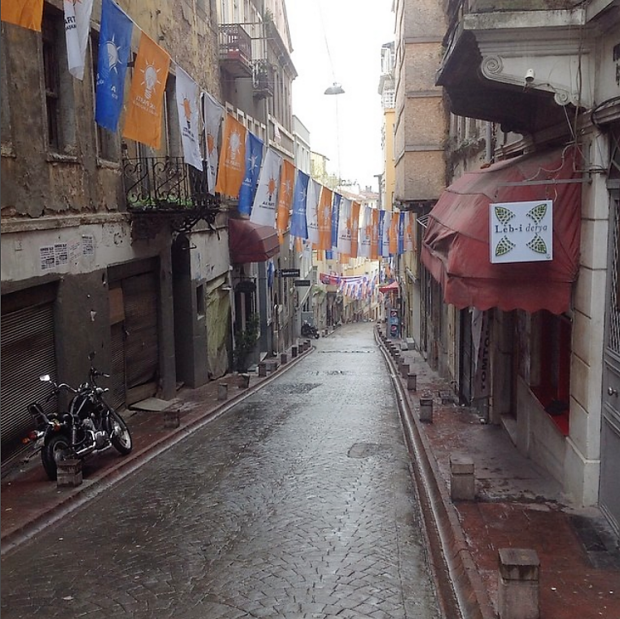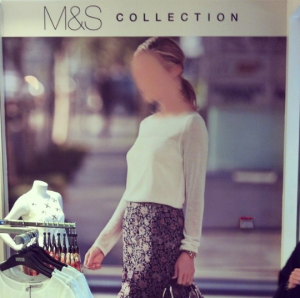At my daughter’s house is a room they use as a theater. It’s a finished basement room, with “projection silver” painted on the wall. In ordinary light, it’s a gray wall. At the end of an ordinary room. The kids wrestle and dive-bomb each other over the sofa. But turn off the lights, and oh! It’s a wonderland. Orcs and superheroes and pirate adventures and happy endings and faraway places. Whatever you want that wall to be, it can be. Sort of.
 People are adept at projection, and I’m not just talking about making the machinery. When we’re embroiled in complex problems that are difficult to explain, let alone solve, we’re far better at visualizing the happy ending than we are at building the road to get there. And like a movie, we project those happy pictures onto whatever will surface will receive them. That surface is usually a dude.
People are adept at projection, and I’m not just talking about making the machinery. When we’re embroiled in complex problems that are difficult to explain, let alone solve, we’re far better at visualizing the happy ending than we are at building the road to get there. And like a movie, we project those happy pictures onto whatever will surface will receive them. That surface is usually a dude.
And that’s where the resemblance ends. If a movie doesn’t turn out the way we want, we grumble about it to our friends and try another. If a dude fails, we’re less forgiving. As I’m writing on the day after Easter, it’s worth noting that according to the stories, Jesus rode into Jerusalem as people shouted “Hosanna.” Not “hallelujah,” mind you (praise God), but “hosanna,” which means “save us.” Within a week, when the expected, longed-for deliverance had not appeared, the same people who’d projected their expectation on him were calling for his execution.
 I’m not plowing any new ground here to point out that the world is in upheaval these days. Where there is poverty and war, people, like water, flow toward the places where there is prosperity and peace. And the people already in those places then become anxious. They want to shut out the poverty and war happening elsewhere. Wall themselves in with their peace and prosperity. And in times of upheaval they project their vision of that life onto dudes who say they can give it to them.
I’m not plowing any new ground here to point out that the world is in upheaval these days. Where there is poverty and war, people, like water, flow toward the places where there is prosperity and peace. And the people already in those places then become anxious. They want to shut out the poverty and war happening elsewhere. Wall themselves in with their peace and prosperity. And in times of upheaval they project their vision of that life onto dudes who say they can give it to them.
Three years ago, in March of 2014, I was living in Saudi Arabia and visiting in Turkey. We arrived just a couple of days before municipal elections that the world was watching anxiously for hints of whether Turkey–the only majority-Muslim country with a democratic, parliamentary government–would continue to tip toward the authoritarian, populist, religion-spouting, conservative strongman Recep Erdogan, or lean back toward the more progressive, democratic, secular principles on which they’d stood for the past many decades.
As results came in for Erdogan’s party, I was worried for Turkey. Living in Saudi Arabia, I wanted to pass the word about what it was like to live under a religious authoritarian government, answerable to no one but a God I’m pretty sure they believed was signaling divine approval of all royal behavior by having royals there in the first place. If you were able to get your hands on a gold toilet, well then God certainly wanted you to have one.
This past Easter Sunday, I saw the Turkish people–pressed by refugees on one side, Islamic Asia on another, secular Europe on another– continue to collapse toward authoritarianism, affirming constitutional changes that would effectively end their parliamentary system and allow the winner of the 2019 election to assume full control of the government. Full control. Any guesses on who expects to win two years from now?
 There’s appeal to a strongman, who tells you what you want to hear, who says that if you’ll just give him power he’ll take care of you. Craft a happy ending for you so you don’t have to. The very vagueness of the promises make it easier for people to project all sorts of hopes and dreams onto him (and forget to question his own motives for power). But at some point, if the images don’t become reality, the dude who received the projection ends up taking the blame. It always ends, and never ends peacefully.
There’s appeal to a strongman, who tells you what you want to hear, who says that if you’ll just give him power he’ll take care of you. Craft a happy ending for you so you don’t have to. The very vagueness of the promises make it easier for people to project all sorts of hopes and dreams onto him (and forget to question his own motives for power). But at some point, if the images don’t become reality, the dude who received the projection ends up taking the blame. It always ends, and never ends peacefully.
I wrote a post while I was there that I decided not to publish at the time. It came across a little more pointedly against the authoritarian government under which I lived than I thought was prudent. (So I wrote another instead, which you can read here.) But as I watched Erdogan receive a country’s projected hopes last week, on the day we remember what happened when a group of people felt like God failed to deliver on theirs, I thought it might be time. So here it is:
March, 2014
There’s something deeply satisfying about a classic tragedy. It’s kind of like a deep-tissue massage–you get your heart muscle really wrung out and worked through, but nobody actually gets hurt. The star-crossed lovers, the faithful but aging dog, the frail child, the great man headed for a fall. Go ahead. Cry it out. It feels great.
 Besides, having things end unreasonably happy cheapens the whole story, doesn’t it? Romeo and Juliet jumping up and yelling “Psych!” then skipping away hand in hand; Bergman giving Bogart a playful jab and saying “You know, the happiness of two folks like us really is everything in the world, don’t you think?”
Besides, having things end unreasonably happy cheapens the whole story, doesn’t it? Romeo and Juliet jumping up and yelling “Psych!” then skipping away hand in hand; Bergman giving Bogart a playful jab and saying “You know, the happiness of two folks like us really is everything in the world, don’t you think?”
No, not getting what we want is actually better for us.
When we tell Turkish Muslims that that we live in Saudi Arabia they grimace and say “Oh, it’s not like that here.” No, it isn’t, but be careful what you wish for. As I write, it’s Sunday, election day in Istanbul. Banners swag across the streets, children run with campaign-colored balloons, and campaign vans with loudspeakers play music and slogans as they drive the main thoroughfares.
I’m an American, and have watched my own country struggle with the relationship between government and religion. Religion provides a moral, tribal, unifying code; government provides the structure to uphold it. They should go well together, right? But I have ample support for the opposite conclusion: We could learn a lot from Bergman and Bogart.
For the results that are actually good for us, rather than the fake, rosy, unnatural ones we think we want, government and religion need to play the star-crossed lovers. They can never, never, get together.
And don’t get me wrong—they’re mad hot for each other. Religion is soft and sexy. It has people’s hearts, their better selves, their longings and hopes, the warm embrace of love. But oh, we struggle to be all she wants us to be. Government, on the other hand, has the muscle. It can make things happen, keep people in line, exact penalties for disobedience that actually have some teeth. Complementary personalities with the same objective. They seem made for each other, right?
For much of human history, they have been intertwined, and it doesn’t take a terribly close reading of history to see the disastrous results. Bloodshed and oppression in the name of God; immoral leadership operating under a stamp of religious authority; enforced ignorance, poverty, and enslavement to serve the selfish ends of the few, propping themselves up with certainty about God’s will.
 To put it simply, religion and government can’t get in bed together without both being corrupted. Religion makes compromises on principle to maintain access to government’s power; government becomes addicted to the ease with which religion allows it to maintain power. Our star-crossed lovers are actually caught in a zombie thriller. Despite the passionate attraction, they can never get together because although neither one is a zombie on his or her own (bear with me), the minute they exchange a few body fluids, bam. Both super scary-looking zombies. Saggy skin and ejectable eyes and flesh falling off.
To put it simply, religion and government can’t get in bed together without both being corrupted. Religion makes compromises on principle to maintain access to government’s power; government becomes addicted to the ease with which religion allows it to maintain power. Our star-crossed lovers are actually caught in a zombie thriller. Despite the passionate attraction, they can never get together because although neither one is a zombie on his or her own (bear with me), the minute they exchange a few body fluids, bam. Both super scary-looking zombies. Saggy skin and ejectable eyes and flesh falling off.
Want proof? Friday’s Arab News included an article assuring readers that “the Ministry of Islamic Affairs, Endowment and Guidance has urged preachers to keep their Friday sermons short and concise and is considering taking legal action against preachers who discuss controversial topics.” It’s also considered firing them. (That article is no longer available; here’s a related one from The Economist.) Yes, government will oversee religious leaders to make sure the citizens are not taught anything controversial or critical of government, or that they are deterred from attending because things get too long or boring.
But the really scary part? The zombies can reproduce, and their children are evil zombies as well. Religious police, for example, which are an actual thing I’ve encountered. They do silly things like this:
And horrible things like allowing schoolgirls to die inside a burning building rather than let them out uncovered.
 See, religion and government each already have spouses, and need to knock off their dangerous flirtation. Government is supposed to be answerable to the will of the people—no secrets, no manipulations, no hanky-panky. The minute government says it needs something else to keep its relationship with the people fresh, government has a problem. Religion is supposed to be answerable only to God, to stay true to the principles and goals of faith. When religion starts feeling as if it needs to go somewhere else for the emotional fulfillment it’s not getting in its current relationship, well, religion has a problem.
See, religion and government each already have spouses, and need to knock off their dangerous flirtation. Government is supposed to be answerable to the will of the people—no secrets, no manipulations, no hanky-panky. The minute government says it needs something else to keep its relationship with the people fresh, government has a problem. Religion is supposed to be answerable only to God, to stay true to the principles and goals of faith. When religion starts feeling as if it needs to go somewhere else for the emotional fulfillment it’s not getting in its current relationship, well, religion has a problem.
In Istanbul, I have seen women in full hijab and abaya. I saw women in mini skirts. I’ve seen women wearing hijab with a pair of jeans, a sweater, and a jacket. I have visited churches and mosques. I have shopped and eaten and strolled, and was welcomed warmly everywhere I went.
This morning, out my window, I heard church bells. And shortly after, I heard the call to prayer. There is power in a place where you hear both.
Peace to the people of Turkey. I hope you’re willing to harness that power to make it stay that way.





Hi Margo, this is a super piece. Do you mind if I quote a paragraph or two in a piece I’m writing about how we decide which countries to visit and which not to? I would of course attribute the source and link to your article. Best regards, Steve
LikeLike
Thank you! Yes, I’d be happy with you quoting. I was meaning to write to you on your United Airlines post as well (https://59steps.wordpress.com/2017/04/11/united-airlines-pr-disaster-mr-munoz-will-go-far/), but you come up with new content too quickly for me to sit on anything! You made such a perfect, beautiful circle in that piece. And now that I’ve opened it to link…I’ll just go ahead and comment there. 😉
LikeLike
Thanks Margo, and for your comments on the United piece, to which I’ve replied!
LikeLike
Hey! nice article…..photograph of the street is beautiful!
LikeLike
Thank you!
LikeLike